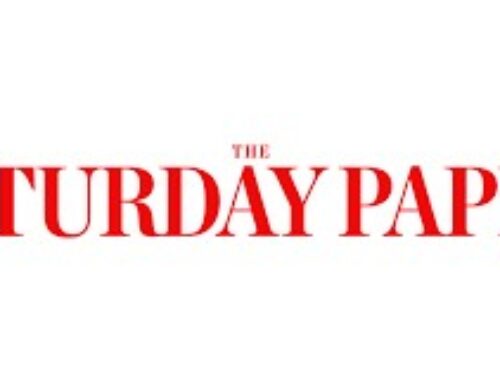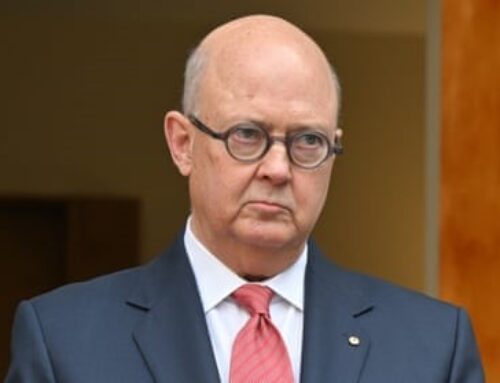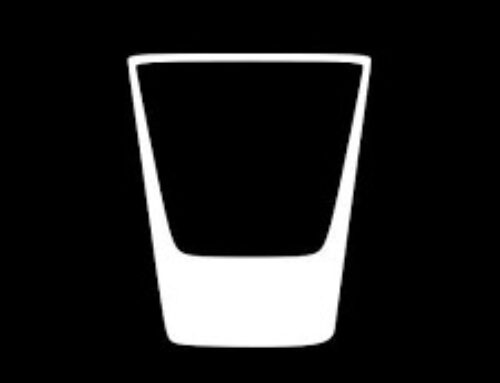The Guardian | Margaret Simons | Saturday June 1, 2024
 In publicising Laura Tingle’s ‘counselling’, the ABC risks giving the bullies a victory.
In publicising Laura Tingle’s ‘counselling’, the ABC risks giving the bullies a victory.
No matter what the national broadcaster does, News Corp and the Australian will keep gnawing at it
There are a few things we can assume the ABC board and executive know only too well.
First, News Corporation, and the Australian newspaper in particular, will always attack the ABC. The reasons are a mixture of ideology and commerce. The ABC is a competitor for audience, and more trusted than any News Corporation publication, as repeated studies confirm.
As for ideology, News Corporation has made no secret of its belief that public broadcasting should be commercialised or sold off.
Secondly, anyone who attacks or criticises News Corporation will in turn be attacked by them, and with the kind of relentlessness and distortion that reminds one of a stalker – an obsessive, attention-seeking love-hate.
Anyone who doesn’t understand these things is ignorant of the verities of the Australian media scene, and therefore should either wise up or not be on the board or the executive. But as I say, I am sure they know.
It follows that the ABC should not be too quick to react to the latest outburst of nuttiness.
And yet Laura Tingle, one of the most senior and respected political journalists in the country, was on Wednesday the subject of a public statement from her boss, ABC news director Justin Stevens, saying she had been “counselled” (a quintessentially passive-aggressive ABC word) over comments she made during a panel discussion at the Sydney writers’ festival. This followed days of fevered headlines in the Australian.
It could be read as hanging her out to dry.
Tingle issued a simultaneous statement both defending herself at length over the few phrases that had drawn the ire of the Australian, drawing attention to the things that were not being reported meanwhile (ahem, the budget) and also admitting regret that the nature of the discussion had meant her comments were not substantiated and contextualised in the way they would have been if she had been writing for the ABC.
Tingle, of course, would hardly be surprised by the pile-on by the Australian.
She has both skewered and predicted the phenomenon.
Three weeks ago, she gave the John Button oration in Melbourne, on the topic of “off-course” public discourse.
It was a lengthy, layered and intellectually nuanced speech. I cannot do it justice here. But given the topic, it was inevitable that she talked about News Corporation. Her words are worth quoting at some length.
Let’s leave aside the daily investment of resources invested in News Corp journalists in search of stories with which to troll the ABC … It’s a little mystifying how a company that has had to pay out an estimated $2bn – so far – in legal settlements for illegally hacking peoples phones, and other invasions of privacy, has set itself up as an arbiter of journalistic standards.
While big media corporations seem to have felt no great responsibility to account for what they have done, the ABC’s public funding gives it an obligation to do so, as best it can … The News Corp campaigns against public broadcasters like the ABC, or for that matter whatever public figure/idea they are pursuing, is relentless and all-embracing.
I was at that speech. Afterwards, members of the audience speculated on how long it would be before the Australian made Tingle pay for her remarks.
And, three weeks later, here we are.
Earlier this week, the Australian claimed that the ABC board was concerning itself with what Tingle said at the Sydney writers’ festival.
As anyone with the tiniest idea of corporate governance knows, intervening in the Tingle matter is not the kind of things boards should do. It is the kind of thing that is properly the domain of management.
Regrettably – shamefully – there have been times in the past when certain members of the ABC board have misunderstood their role. But the current crop, one hopes, have more sense and integrity.
If the board is interfering, either its members don’t understand their job, or they have so lost confidence in management that sackings will shortly follow – and to be clear, there is absolutely no suggestion of that.
It’s hard, in this environment, to winnow the substance from the flimflam. But there are some things that should be said about these events and some lessons to be drawn.
Working for the ABC, as new chairman Kim Williams has recently observed, brings hard responsibilities. The discipline of objectivity in public broadcasting is, properly, greater than other commercial publications.
Senior journalists who make the transition from private media to the ABC sometimes take a while to internalise the culture of constant self-restraint which those who grow up in the organisation carry like a carapace.
But not always. When Chris Uhlman became ABC political editor in 2015, in that role he railed against the Greens and renewable energy in a way that can, at the very least, be described as an indulgence.
Guess what? The Australian did not see a problem. If he was “counselled”, it never became public.
And now, half a decade later, Uhlmann is railing against Tingle’s transgression from the bully pulpit of News Corporation’s Sky News.
Irony is not a strong enough word. Hypocrisy comes closer.
Or to take another case, there is news presenter Fauziah Ibrahim, who compiled Twitter lists labelling ALP supporters as “lobotomised shitheads” in a clear breach of ABC policies on social media. We know the ABC “reviewed” her social media activity. We can assume she was at least “counselled”. But the details did not become public, and if the Australian thought it was a problem, it was very quiet about it.
Intervening in the Tingle matter is not the kind of things boards should do
The important distinction here – the one that has got Tingle in to trouble – is between analysis and opinion. Under the ABC editorial policies, its staff journalists are allowed to produce analysis, but not opinion. You can read here how the ABC distinguishes between the two.
Personally, I think it is a continuum, not a category difference, but the ABC would disagree. It sees them as quite different things.
Analysis is when an experienced reporter (such as Tingle) draws on their experience, judgement and knowledge to explain things – to assist with understanding. The tone should be “explanatory and reasoned” but “not judgemental”. It should be based on “demonstrable facts”. But it can include descriptions and value judgements – words such as “worrying” or “surprising”, for example.
On this measure, I think there was a problem with what Tingle said at the writers’ festival. She spoke loosely, in a heated debate. What she said was a pared down, decontextualised version of commentary she has written for the ABC, but it was, for my money, crossing a line.
Hard, though, to see how you could hold your own in such an exchange while keeping carefully to the distinctions the ABC draws.
If we lived in a less bad-faith media environment, then Tingle’s transgression – if that is what it was – would have been the subject of an internal conversation, not a public shaming.
But the ABC was due to appear before Senate estimates on Thursday. As one in-the-know observer put it, management would have seen “this great steaming pile of poo” ahead. Knowing they would be pummelled over it, and not wanting to be forced into admissions in the midst of the bear pit, they tried to get out in front.
1:51
News Corp ‘obsessed’ with ABC, says broadcaster’s boss after ‘pile-on’ over Tingle comments – video
Nice try, but of course it did not satisfy the Australian, which wrote up Stevens’ mild-mannered statement as a public “lambasting” of Tingle and a “stinging” rebuke – a ridiculous distortion.
Arguably, issuing the statement declaring that Tingle had been counselled cleared the way for managing director David Anderson to mount his strong defence of Tingle before Senate estimates, declaring her one of the most respected and admired journalists in the country and decrying the “ferocity and frankly vicious attacks” to which she had been subjected.
He also clarified that the problem, so far as the ABC was concerned, was not that she described Australia as a racist nation, but that she did not “provide the relevant context and explanation to support her analysis of the opposition’s post-budget policy position on immigration”.
The risk is that the publicising of Tingle’s “counselling” is seen as giving the bullies a victory. Anderson told Senate estimates that the statement was issued not as a response to News Corporation, but in defence of its own editorial standards and its duty of accountability. But if that were entirely true, we would know much more about other cases where staff have been counselled – see the above examples.
The other risk is that younger reporters will take from this the lesson that it is dangerous to be critical of the Coalition – but not, apparently, of the Greens or Labor. That reporting and analysis should be bland and robotic. That they should not participate in public conversations outside the strictures of the ABC.
In a healthy editorial culture, there should be internal conversations that both support people such as Tingle in making the transition to the constraints of the ABC, and also make clear to younger reporters that their job IS to scrutinise the powerful, and that the corporation will support them in doing so.
I am not confident those internal conversations are taking place, or at least there are not enough of them.
In the unlikely event that the ABC board is looking for more things to do, it is these kinds of things – systemic cultural and capacity issues to do with the health of the newsroom, and the organisation’s ability to understand itself and its role, to which it might properly turn.
As for the people at the Australian, it wouldn’t matter what the ABC or Tingle did. They will keep gnawing at the bone. Best to ignore them.
- Margaret Simons is an award-winning freelance journalist and author. She is an honorary principal fellow of the Centre for Advancing Journalism and a member of the board of the Scott Trust, which owns Guardian Media Group




